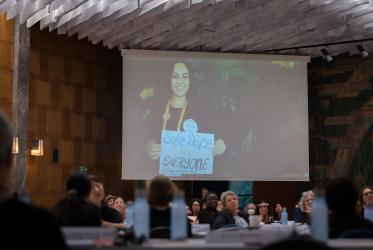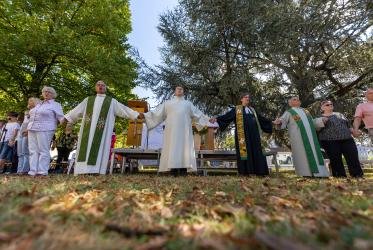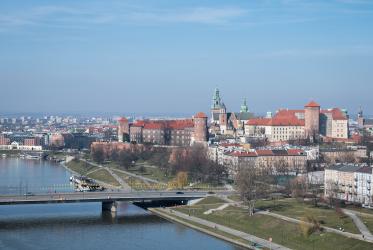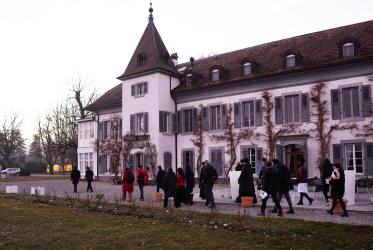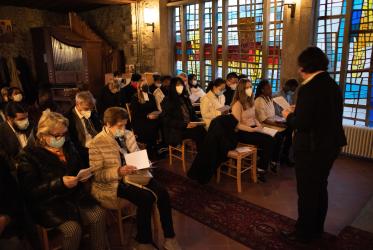Displaying 1 - 20 of 23
21 March 2024
Dear future steward
08 September 2022
Uppsala 1968: The times, they were a’changing
06 September 2022
Youth demand climate justice
03 September 2022
Women with disabilities want to belong in churches
31 August 2022
Bossey student Carolina Zamorano reflects on study visit to Rome
02 February 2022


